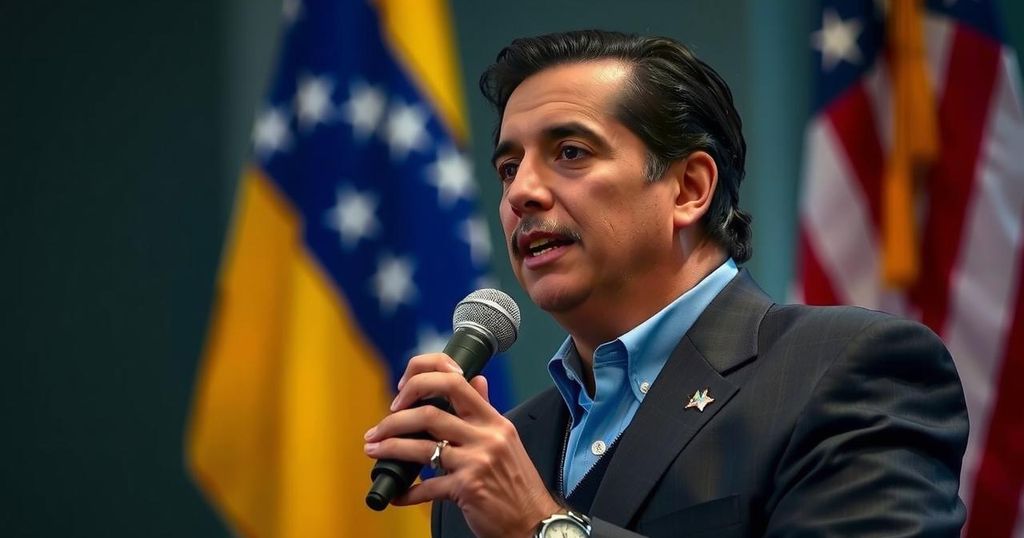U.S. Recognizes Edmundo Gonzalez as Venezuela’s President-Elect Following Disputed Election

The U.S. has recognized Edmundo Gonzalez as Venezuela’s president-elect after the disputed July presidential elections, marking a significant policy shift. Secretary of State Antony Blinken stated democracy requires respect for voter choice, while Gonzalez expressed appreciation for the support. However, the Venezuelan government, led by Maduro, continues to claim electoral legitimacy amid ongoing allegations of fraud.
The United States has officially recognized Edmundo Gonzalez, a leader of the Venezuelan opposition, as the president-elect following the controversial presidential elections held on July 28. Secretary of State Antony Blinken made this announcement via social media during his participation in the G20 summit in Rio de Janeiro. Blinken emphasized that the will of the Venezuelan electorate was unmistakable and must be respected, stating that democracy requires acknowledgment of voters’ choices.
This recognition signifies a notable shift in U.S. foreign policy regarding Venezuela. For months, while acknowledging that Gonzalez had secured more votes than the incumbent Nicolas Maduro, the U.S. refrained from officially designating him as president-elect. A spokesperson from the State Department asserted the consensus among the U.S., democratic allies, and independent electoral observers that Gonzalez received the majority of votes, thereby legitimizing his status as president-elect.
In response, Gonzalez expressed gratitude towards the United States for recognizing what he termed the sovereign will of the Venezuelan people, stating that it honors their collective desire for change and acknowledges their electoral achievement on July 28. However, the Venezuelan Foreign Minister, Yvan Gil, decried Blinken’s declaration as absurd, illustrating the contentious political atmosphere surrounding the elections.
Amidst these developments, accusations of electoral malpractice have persisted since Maduro’s administration declared him the victor, despite the opposition’s claims that Gonzalez won with over 70% of the vote. Electoral observers, including representatives from the Carter Center and the United Nations, supported the opposition’s voting tallies as credible. Furthermore, despite the ongoing political turmoil, Gonzalez intends to return to Venezuela for the inauguration scheduled for January 10, following his recent relocation to Spain due to safety concerns.
The political climate in Venezuela has been deeply polarized, especially with the tension between the government led by President Nicolas Maduro and the opposition. The July 28 presidential election was marred by allegations of irregularities and vote rigging, leading the opposition to contest the results. Edmundo Gonzalez emerged as a prominent figure within this opposition, advocating for a change in leadership. The international community has closely monitored the situation, with various organizations evaluating the legitimacy of the electoral process, and recently confirming Gonzalez’s victory, which has now garnered official acknowledgment from the United States.
In conclusion, the United States’ recognition of Edmundo Gonzalez as Venezuela’s president-elect marks a pivotal moment in both Venezuelan politics and U.S. foreign relations. Amidst a backdrop of contested elections and allegations of fraud, this move reaffirms the need for respect for democratic processes and highlights the challenges facing the Maduro administration. The unfolding developments in Venezuela will undoubtedly continue to attract international scrutiny and potentially shape future diplomatic engagements.
Original Source: edition.cnn.com







